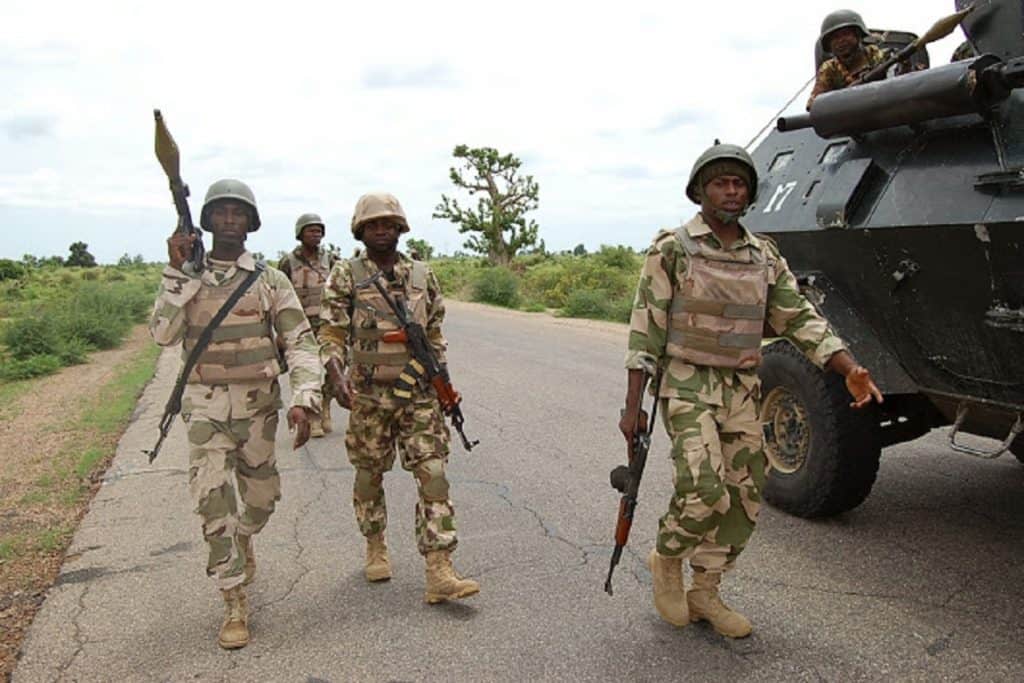After nearly nine years of battling the dreaded Boko Haram sect, Nigeria appears nowhere close to ending their reign in its northeast region. Yearly, the sect is responsible for the death of thousands, including soldiers, and has helped to displace millions of people in that region. And since 2009, the group has killed over 20,000 people and has displaced over 2 million.1
Although Nigeria has restricted the group from spreading beyond the north east, its security forces have failed to effectively curtail their influence beyond Nigeria. And this has serious implications for the West African region, particularly countries in the Lake Chad Basin, such as Niger, Chad and Cameroun.
In this article, I discuss these issues and emphasize that Nigeria’s inability to effectively address the problem is having a spillover to other countries. But first, a brief background to what Boko Haram is and how it came to become one of the world’s deadliest terror groups.
What is Boko Haram?
Boko Haram is a terrorist group founded by Muhammed Yusuf in 2002. Boko Haram seeks to establish an Islamic state governed by Sharia law in Nigeria. Boko Haram according to Hausa local language translates into: western education is a sin or is forbidden.2 The group also has known ties to Al Qaeda and the Islamic State in Iraq and Syria (ISIS).3
Over the last nine years, the sect has been responsible for the spate of suicide bombings, killings, and kidnappings in the Northern part of the country, particularly the North-East and Abuja.
In 2014, it’s most violent year, the group killed over 2000 people between January and July alone.4 In the same year, the group kidnapped over 200 school girls, drawing international condemnation and leading the “BringBackOurGirls” movement which forced the government to act.5
How Nigeria is Failing to Stop Boko Haram
The Nigerian military has been at the forefront in addressing the Boko Haram menace. Since 2009, the military has strived to contain the terrorists but was slow to identify the group as a threat to the entire West African region.
Between 2010 and 2014, there were at least 27 Boko Haram attacks in Nigeria targeting high profile locations like Military barracks, prisons, schools, even the country’s capital, Abuja.6 At the height of its power, the group controlled an area roughly the size of Belgium in Nigeria’s north east.
But a series of military assaults, beginning in late 2014, helped to push back the terrorist. In early 2015, Nigeria led the Multi National Joint Task Force (MNJTF), regional effort to effort quash the Boko Haram terror group.7 By May 2015, the group had lost much of its territorial gains. And at the time, the Nigerian president, Muhammadu Buhari, claimed the Boko Haram was “technically defeated”.8
However, three years after, Boko Haram looks far from defeated, and recently, the group has made assaults reminiscent of those made in 2014.
In February 2018 for instance, the group kidnapped over a 100 school girls from Dapchi in Yobe State, 275 km from where the Chibok girls were abducted in 2014.9 It did however release 106 of the kidnapped Dapchi students, but held on to the lone Christian among them, Leah Sharibu. And this
This did not help Nigeria’s international credibility as a nation capable of halting Boko Haram.
Particularly, in recent times, Boko Haram has focused heavily on attacking Nigerian military outpost and operations in the north east, killing hundreds of soldiers. And according to the AFP, the terror group has made at least 17 attempts since July 2018 to attack military bases.10
Most recently, the terrorists successfully attacked a military base in Metele Village in Borno State. It leveled the base within minutes according to sources and killed about 100 soldiers.11
The latest assault shook the country and is has affected military confidence even further. And it rubbishes claims that Boko Haram has been defeated. Instead, Nigeria is seriously losing the war against the insurgents. And the implications would be devastating for not just the country, but West Africa generally.
How West Africa is At Risk
Boko Haram is not the only terror group terrorizing countries in West Africa. But it does appear to have the upper hand, largely thanks to its location.
With the north east fringes of Nigeria serving as its base, Boko Haram is strategically poised to disrupt nations in the Lake Chad Basin.
From this location, the group has launched attacks in the past into nations like Chad, Cameroun and Niger.12 And it could also use this corridor to extend its tentacles to other African countries in Western and Central Africa.
Importantly too, in 2016, a splinter group emerged from Boko Haram, calling itself, the Islamic State West Africa Province (ISWAP).13 ISWAP is being led by Abu-Musab al-Barnawi, son of Muhammad Yusuf, and has the full support of the Islamic State (ISIS). And according to several reports, ISWAP is the faction leading several assaults against the Nigerian army in recent times.
Considering ISIS’ international ambitions, ISWAP appears to be a huge threat for West Africa’s security. Countries like Cameroun and Chad are already facing serious internal instability and even insurgency. But with ISWAP/Boko Haram lurking around, these issues could escalate quickly and plunge these countries into dire crisis.
Conclusion
The Boko Haram terror group is the most notorious sect causing instability to the Nigerian polity. Over the last nine years, the group has concentrated attacks in the country’s north east region and has made this location its base. However, the group is has not restricted itself to Nigeria. And buoyed Nigeria’s inability to tackle them and by the fact that it operates in the Lake Chad Basin, Boko Haram represents a huge threat also to the national security of countries such as Niger, Cameroun and Chad.
Image Credit: Nigerianeye







